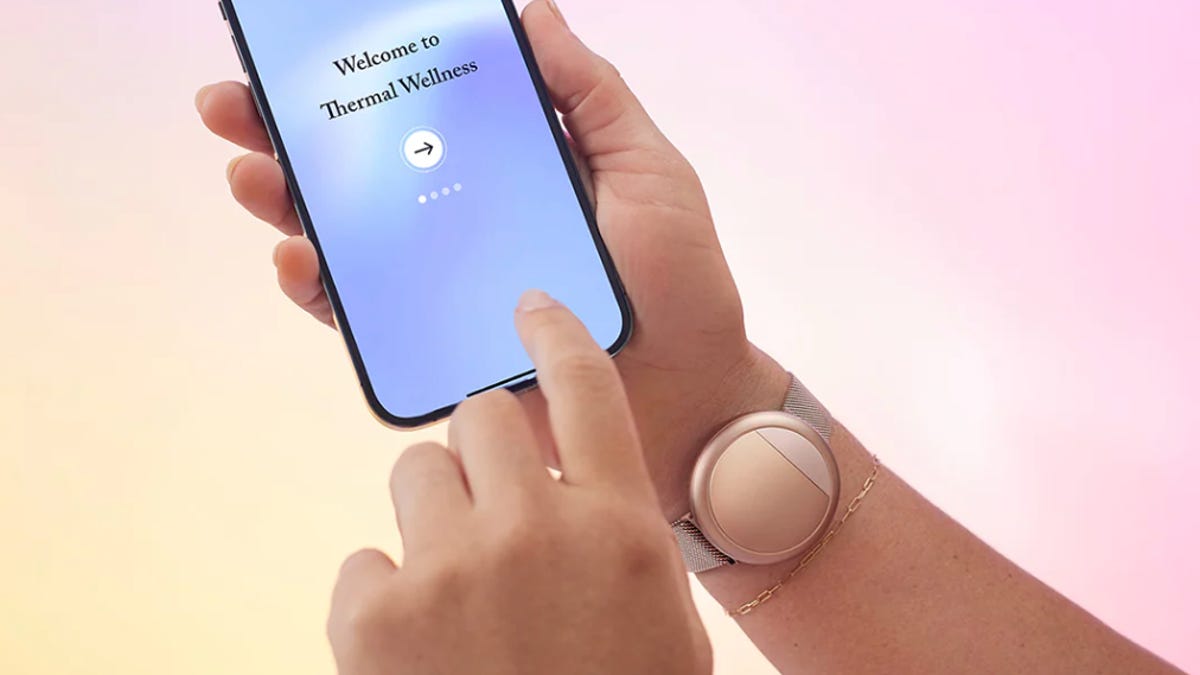 Why You Can Trust CNET
Why You Can Trust CNET Calling All Hot Sleepers and Hot Flashers: This Wearable May Be Worth a Try
Could a personalized thermostat be a game-changing menopause device or hot-sleeping hack?

If you could stop being flushed or uncomfortably warm by setting an app or wearing a thermostat that looks like a watch, would you?
Embr Labs thinks so, so they're selling a device called the Embr Wave. While the Wave made its debut years earlier, and the conception of the idea links back to something called the Wristify, the current Embr Wave 2 is making its rounds in some media feeds as a potential answer for those with temperature and sleep concerns. The Embr Wave is a stealthy thermostat that sits on your wrist, offering hot sleepers, people with hot flashes and anyone else who is bothered by bursts of temperature shifts -- hot or cold -- a little bit of relief through the push of a button and some app settings.
How it works
The Embr Wave looks like a watch, but instead of the circular face sitting on the outside of your wrist, it sits on the inside where the skin is particularly temperature-sensitive. It comes in rose gold or black color and, no, it can't tell time or take any health metrics like other wearables can.
The tech inside works like this to cool you down: a battery-powered thermoelectric heat pump generates cool sensations by moving heat away from your wrist. If you're using it to warm up, it works by moving heat to your wrist. Yes, it can do both because there's a paired app that lets you customize it. You're able to adjust the intensity and how long the sensations last, from 5 minutes of relief (you feel a hot flash coming on) or up to 9 hours (presumably, for the hot sleepers). The idea is to trigger a response starting on your wrist that will (hopefully) alter how hot or cold you feel.
It's likely a future Embr Wave model will be even more customizable. The company announced research late last year, in partnership with the University of Massachusetts Amherst's Institute for Applied Life Sciences, on a type of predictive algorithm that could stop a hot flash in its tracks, hopefully before a person even registers it. This new predictive sensor will be included in a future Gen 3 model, the company says.
Embr Labs says that its product is safe, comparing it to holding a mug of warm coffee or dropping your feet into cool water. Embr also says it won't change your body's core temperature.
While this may a good wearable to consider for people who find themselves getting chilly or heating up, health conditions can affect how cold or hot you feel. If you're chronically cold or unreasonably hot, it's a good idea to see your doctor to get to the root issue -- and ask their opinion on whether point-related temperature relief on the wrist is worth a try.
How much it costs and how to order
The Embr Wave costs $299, but it's currently on sale for $259. If you don't like it, you have 60 days to return for a refund.
Embr also offers a $20 monthly plan, which includes the price of the Wave device. This is a pay-as-you-go option, and you can return your device at any time, the company says, but you won't get your money back for the months you've already paid for and used it.

